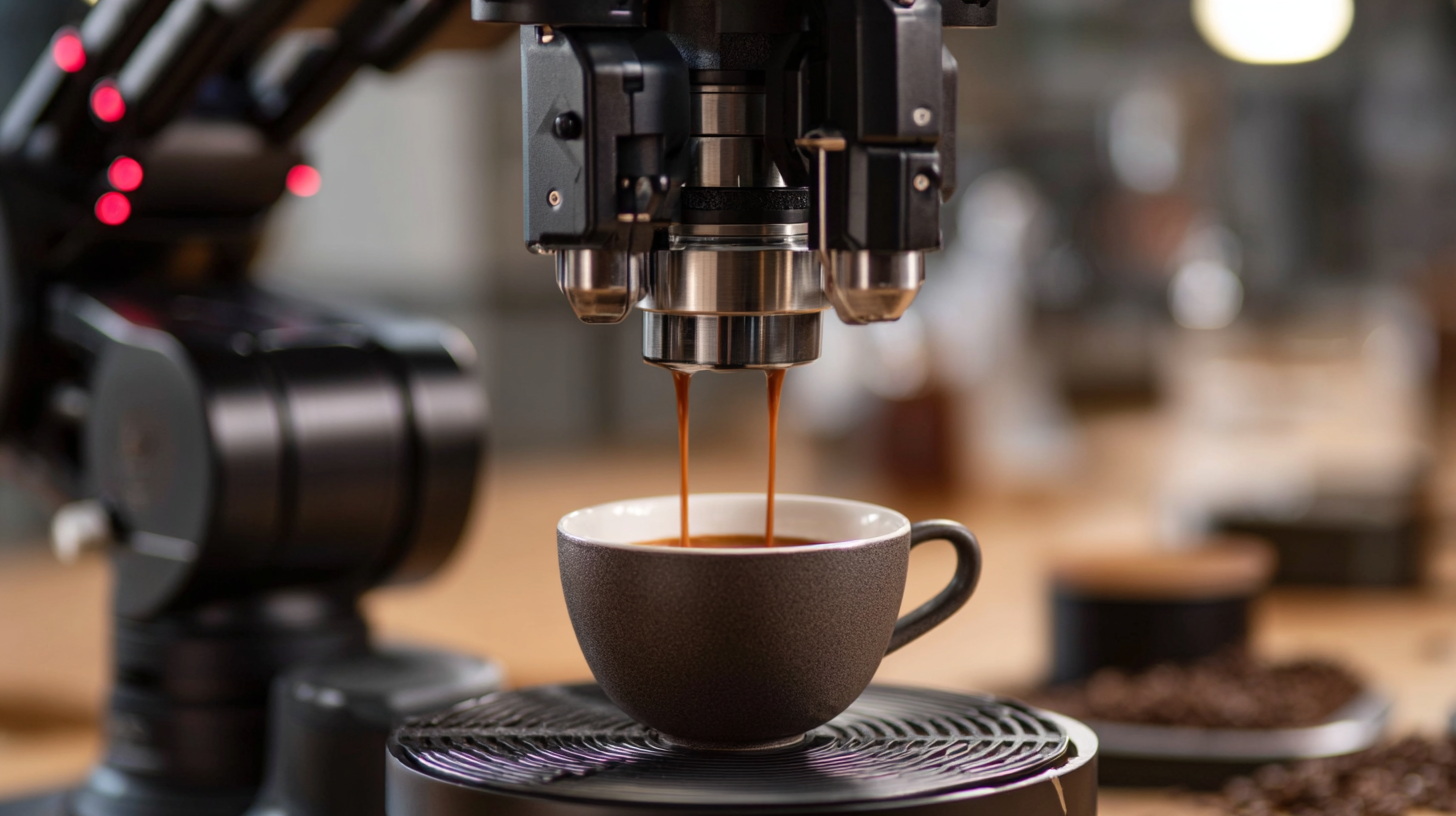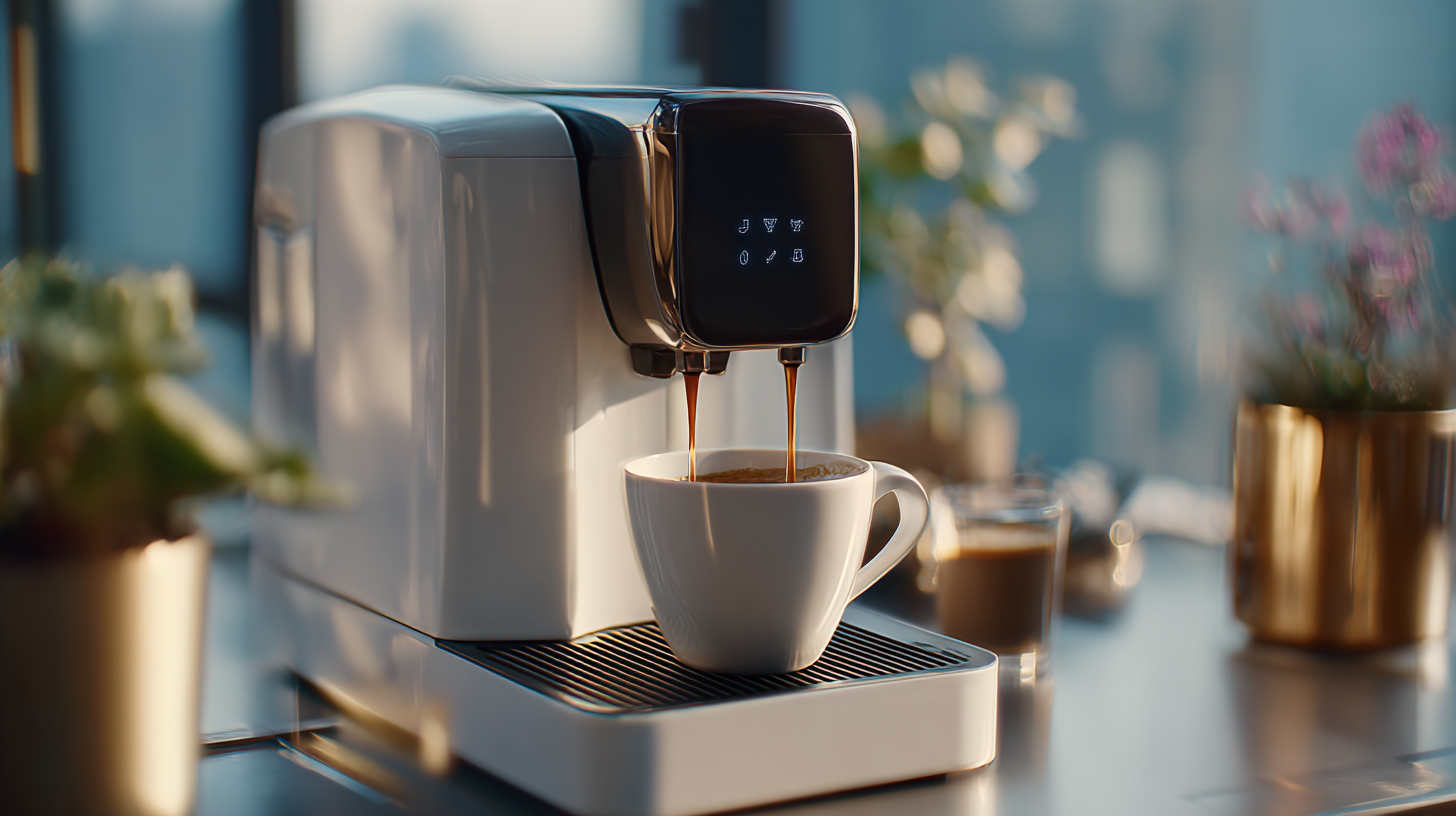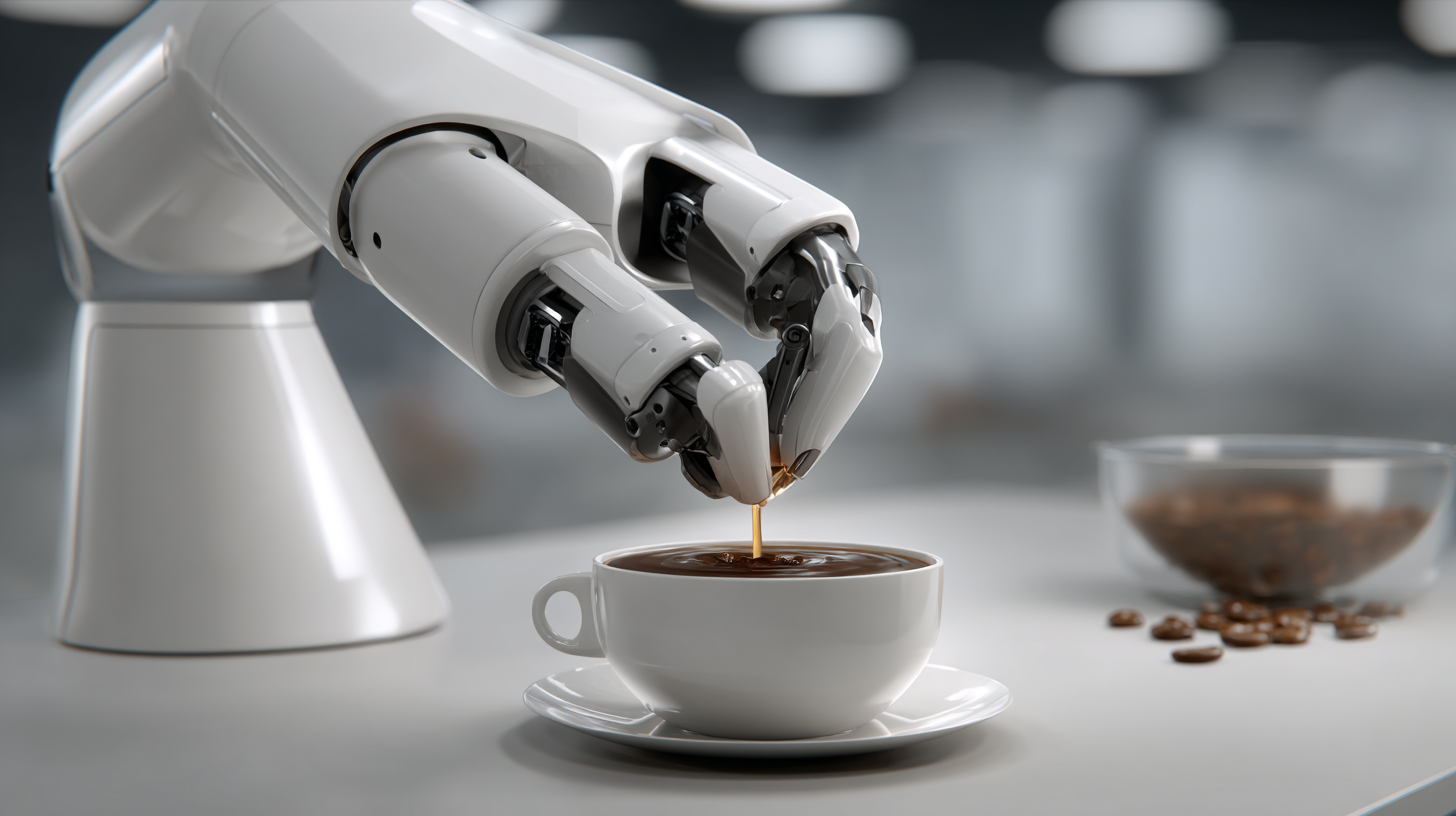How Coffee Robots Are Revolutionizing Your Morning Brew: The Future of Automated Coffee Making
In recent years, the coffee industry has witnessed a transformative shift towards automation, with "Coffee Robots" emerging as a pioneering solution to streamline and enhance the brewing experience. According to a report by Market Research Future, the global coffee machine market is projected to reach USD 10.28 billion by 2025, growing at a CAGR of 4.8%. This growth is largely driven by the increasing demand for convenience and efficiency among consumers, particularly in busy urban environments. Coffee robots not only cater to this demand but also introduce precision and consistency that can revolutionize the traditional brewing process.
With the integration of advanced technologies such as artificial intelligence and IoT, coffee robots are optimizing the brewing process, ensuring that each cup is crafted to perfection. A study from Technavio revealed that the incorporation of automation in coffee preparation could reduce preparation time by up to 60%, allowing coffee lovers to enjoy their favorite brew with unprecedented speed. Additionally, these innovations are reshaping the coffee shop landscape, enabling businesses to serve high-quality beverages while minimizing labor costs and maximizing customer satisfaction. As the coffee culture continues to evolve, coffee robots represent the future of automated coffee making, promising to redefine how we experience our morning brew.

The Rise of Coffee Robotics: A Look at Industry Growth and Automation Trends
The coffee robotics sector is experiencing significant growth, fueled by advancements in automation and a growing demand for convenience among consumers. According to a recent industry report, the global coffee machine market is projected to reach $10 billion by 2026, with a notable portion attributed to automated coffee makers. This surge in interest is reflected in the increasing participation of startups, with over 2,200 innovative companies emerging in the food processing sector, particularly focusing on coffee automation.

Tip: Consider investing in a coffee robot that offers customizable brewing options to cater to diverse customer preferences. Emphasizing sustainability by choosing energy-efficient models can also positively impact your brand while attracting environmentally conscious consumers. Staying informed about emerging trends in coffee robotics will position your business favorably in a competitive landscape.
Key Technologies Driving Automated Coffee Making: AI and Robotics Innovations
The advent of artificial intelligence (AI) and robotics is reshaping the way we experience coffee in the morning. AI-driven algorithms are now capable of analyzing vast amounts of data to tailor each cup based on individual preferences. For instance, these technologies can learn from user feedback to adjust brewing times, temperatures, and coffee bean ratios, ensuring a personalized brew that meets the evolving taste of each consumer. This level of customization was once the realm of skilled baristas, but now it is accessible to anyone through automated systems.
Robotics innovations play a crucial role in the automation of coffee making as well. Robotic arms can now handle tasks such as grinding beans, frothing milk, and pouring the perfect espresso with precision and consistency. These machines are designed to replicate the techniques of professional baristas, allowing for a flawless cup of coffee without the variability that comes with human intervention. As these technologies continue to evolve, we can expect even greater advancements, making automated coffee making not just a convenience but a new standard in home brewing.
How Coffee Robots Are Revolutionizing Your Morning Brew
| Feature | Description | Technologies Involved | Benefits |
|---|---|---|---|
| Smart Brewing | Automatic adjustment of brewing parameters based on user preference. | AI Algorithms, Sensors | Consistent coffee quality tailored to individual tastes. |
| Voice Control | Manage coffee preparation via voice commands. | Voice Recognition Technology | Hands-free operation for convenience. |
| Mobile App Integration | Control and schedule coffee making from smartphone apps. | Mobile Technology, IoT | Remote access and monitoring of the coffee maker. |
| Self-Cleaning | Automated cleaning process to maintain hygiene. | Robotic Systems, Smart Sensors | Reduced maintenance effort and improved hygiene. |
| Custom Brew Profiles | Users can save their unique coffee recipes for future use. | AI Learning, Memory Systems | Personalized coffee experience every time. |
Consumer Preferences Shifting: How Automation Enhances Coffee Quality and Consistency
As consumer preferences continue to evolve, the demand for high-quality coffee has led to an increase in automated coffee making technologies. Modern coffee robots are designed to enhance the brewing experience by offering consistent and precise control over variables such as temperature, pressure, and brewing time. These automated systems not only replicate the techniques of skilled baristas but also reduce the risk of human error that can affect the final product's taste.
Moreover, automation in coffee preparation addresses the need for consistency, a critical factor for both casual drinkers and coffee connoisseurs. With the ability to store and replicate specific recipes and parameters, coffee robots ensure that every cup meets a predefined standard of quality. This shift towards automation not only elevates the overall coffee experience but also caters to a growing market that values convenience without sacrificing flavor. As technology continues to advance, it is evident that automated coffee-making solutions will play a pivotal role in shaping the future of our morning brew.
Market Predictions: The Impact of Coffee Robots on Future Sales and Consumer Behavior
The rise of coffee robots is set to transform the way consumers interact with their morning brew, leading to significant changes in future sales and consumer behavior. With advancements in automation and artificial intelligence, these machines not only promise consistency in quality but also offer personalized brewing experiences tailored to individual tastes. As more coffee enthusiasts adopt these technologies, market predictions indicate a sharp increase in demand for automated brewing solutions, reshaping the landscape of the coffee industry.
Consumers are likely to embrace these innovations not just for convenience, but also for the novelty and precision they bring to coffee preparation. The ability to customize beverages from the comfort of home or through smart devices will appeal to a tech-savvy generation that values both taste and efficiency. Additionally, as coffee robots become more prevalent in urban spaces and workplaces, the interaction between consumers and traditional coffee shops may shift, prompting a reevaluation of business models within the industry. As a result, companies will need to adapt quickly to these trends to stay competitive in a rapidly evolving market.
Sustainability in Coffee Production: Automated Solutions for Eco-Friendly Brewing
The rise of coffee robots is not only changing how we brew our morning cups but also introducing sustainable practices in coffee production. Automated coffee-making solutions are designed to minimize waste and use resources more efficiently. These machines optimize the brewing process, ensuring that every drop of water and every coffee bean is utilized to its fullest potential. By managing temperature, pressure, and brew time with precision, these devices result in a finer cup of coffee while reducing energy consumption and waste.

Moreover, automated coffee solutions contribute to eco-friendly practices by streamlining supply chains and reducing the carbon footprint associated with traditional coffee production. Innovations in robotics allow for more effective monitoring of coffee farms, helping growers make informed decisions about water usage and fertilization. As these technologies advance, they not only enhance the quality of the coffee produced but also ensure that sustainable practices are integrated into every stage of production, from bean cultivation to the final brew. This approach highlights the importance of balancing quality and sustainability in the ever-evolving coffee industry.

